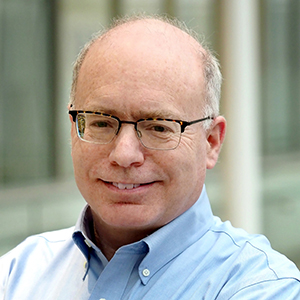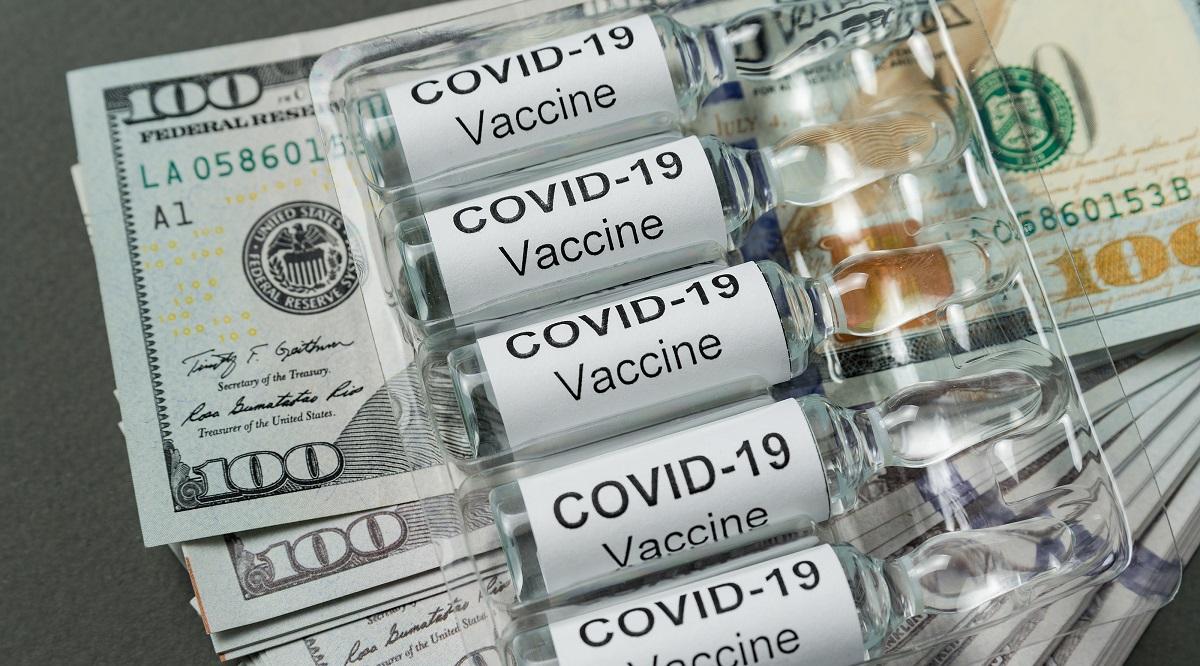Doughnuts. Movie popcorn. Days off work, steak dinners, and cash rewards. Businesses have been dishing out — and health experts have been mulling over — ways to entice more people to accept COVID-19 vaccination. For example, Amtrak is offering employees two hours of pay, and the Kroger grocery chain dangled $200 worth of store credit and outright payment. Former Democratic presidential candidates John Delaney and Andrew Yang even backed a proposal to pay everyone who gets vaccinated $1,000.
Creative encouragement might make sense given the need for herd immunity to curtail the deadly pandemic. Though vaccine uptake is on the rise, a significant chunk of the U.S. population remains skeptical. Recent data show 17% taking a wait-and-see stance, 13% saying they will definitely not get vaccinated, and 7% doing so only if required.
But does offering money and other incentives for vaccination come with costs?
AAMCNews spoke with David Asch, MD, MBA, executive director of the Penn Medicine Center for Health Care Innovation. He has spent decades studying ways to improve people’s health decisions, combining psychology and marketing in the field now called behavioral economics.
Asch, a professor at both the University of Pennsylvania’s Perelman School of Medicine and its Wharton School in Philadelphia, shared his thoughts on whether financial incentives work, how small messaging tweaks can make a big difference, and some surprising factors that often drive our health behaviors.
What’s the thinking behind offering financial incentives for health-related behaviors?
 Courtesy: David Asch, MD, MBA
Courtesy: David Asch, MD, MBA
Some people wrinkle their noses at the idea of financial incentives for health behaviors, but we've actually been using them for a very long time.
Think about a typical health insurance plan. It’s full of deductibles, out-of-pocket charges, and all sorts of financial incentives designed to influence people’s health care. Employers also offer financial incentives to encourage behaviors like losing weight or quitting smoking. In fact, my colleagues and I have shown repeatedly that financial incentives roughly triple quit rates among people who would like to quit smoking. So, we crossed that threshold a long time ago.
The question is whether these incentives make sense for the COVID-19 vaccines.
Do you support financial incentives to promote COVID-19 vaccination?
I'm pretty negative about them. I’ve just said incentives often work in health care. So, you might say, “You’re in favor of vaccines. You believe incentives can work. So why is this not chocolate and peanut butter — two great things that are better together?”
The reason is that what we're really trying to do here is motivate people who don’t want to get vaccinated. Financial incentives can help people who are already interested in a behavior like quitting smoking. But if someone really doesn’t want to get vaccinated, I'm not sure there's an amount of money we’d be willing to offer that would also work.
And if we do offer money, we might actually inflame their concerns. Someone who has a lot of distrust of the vaccine might think, “They’d never offer money if this was a good thing.”
So, the approach could backfire.
If we start paying people now, might people who got vaccinated earlier complain?
Almost certainly they will.
My colleagues and I did a study on paying people to quit smoking in a bunch of General Electric (GE) plants. Employees who wanted to quit smoking were randomized into two groups. One got a referral to a smoking cessation program, and the other got the referral plus $750 if they quit. The incentive was very successful, so GE continued the program. But they changed it.
Instead of paying those smokers who quit, they decided to charge the smokers $600 for not quitting. They did that mainly because of concerns that people who had quit on their own and people who had never smoked would say, “Hey, where's my money?” You can imagine what people who got vaccinated would say if they see other people getting paid $1,000.
Of course, we could go back and pay everyone. But the economist in me would note the great inefficiency in paying everyone when most people would gladly get vaccinated for free.
Employers are giving staff cash bonuses, time off, and steak dinners to get vaccinated. Is that a good idea?
Employers giving time off to get vaccinated doesn’t raise the concerns I mentioned about financial incentives. Time off isn’t really an incentive because I imagine most people wouldn't be getting a vaccine just so they can take a couple hours off. Instead, I see time off as just allowing people flexibility so they can get a vaccine.
Providing fancy dinners is a grayer area. If an employer is offering a fancy dinner — let’s not say a steak dinner since that’s not particularly healthy — people who don’t take it could be effectively revealing their lack of vaccination. What if I don't want to get vaccinated and I'm worried that my employer decides that makes me a less worthy employee? The offer could be seen as coercive.
Might financial incentives put excessive pressure on people with lower incomes?
When it comes to incentives, everyone is not in the same boat. The pressure imposed by financial incentives falls differentially across different populations.
A better approach is to try to reduce obstacles that people face in getting vaccines — think of all those logistical, scheduling, and access challenges that are limiting the use of vaccines. Solving those challenges would be great, but it won’t be enough: Even if those who wanted a vaccine could just snap their fingers and get it, I don’t think that brings us to the level we need for herd immunity.
If incentives aren’t ideal, what does that leave?
There are fundamentally two ways to motivate behaviors: rules and incentives. Rules are what we do with most vaccinations. If you think about childhood vaccines, the rule is, you’ve got to be vaccinated or you can’t go to school. We do that because the vaccination decision that you make affects not just your health but also that of other people.
There are several reasons why this approach hasn’t received much traction now. In part, it’s because these vaccines are approved under emergency use authorization. Also, we have what I'll call a “turnstile” for children — meaning they all have to go to school, which makes it possible to oversee their vaccination. We don't really have a good process for that with adults.
What’s your opinion of the now-famous offer of a daily doughnut to encourage vaccination?
The Krispy Kreme doughnuts giveaway is probably a marketing move more than anything else, and the fact that we’re talking about it suggests that it’s a very effective marketing move. I don't have a problem with that — other than the risk of obesity from all the doughnuts possibly being consumed every day. But I’d rather people use prosocial approaches, like an “I donated blood” sticker.
In the case of vaccination, that’s useful in two ways. First, I just did something altruistic, but no one may know I did it. So, if I wear a sticker, I basically get to show I’m a good person, which can be a motivator — it gives me status. The sticker can also be a way to show people that I’m safe — or at least safer — to be around. The secondary purpose is that if someone sees my sticker, it may inspire them to take action too, since people tend to be influenced by other people.
I got my “I got vaccinated” sticker, but it fell off in a day. So, maybe a nice idea would be a lapel pin that lasts longer.
Based on your health promotion experience, what other steps would you recommend to encourage vaccination?
The fundamental question is, “How do we motivate people to get vaccinated?”
There are a variety of techniques that are lighter touches than either rules or incentives. They’re from behavioral economics, they’re a gentle form of paternalism — and yet they’re very powerful.
There’s something called “social norming.” As much as we like to think that we make our own decisions, the truth is that one of the most motivating factors for humans is doing what we think everyone else is doing. So, for example, it makes sense to have charismatic celebrities become role models, like when broadcast journalist Katie Couric got her colonoscopy on TV. Celebrity endorsements work.
Also, how messages get framed can affect vaccine uptake.
Consider two messages that sound almost identical: “Get a COVID-19 vaccine to protect yourself” versus “Don’t miss out on your COVID-19 vaccine.” The second one is typically much more motivating that the first. It’s called “loss aversion.” We've done a lot of experiments on this. If you motivate someone with, say, not losing $1 a day as opposed to winning $1 a day, you will get typically double the effect.
That’s because we tend to be emotional rather than rational. Don’t try to use rules based on rational ideas — that’s the mantra of the behavioral economist.
Because we’re not rational, we need to design programs that anticipate the ways in which we're not rational. A key principle of behavioral economics isn't just recognizing that we are irrational — but that we are irrational in highly predictable ways. And to be effective, we need to know how to hitch our programs to those predictable psychological foibles.
This interview has been edited for length and clarity.

